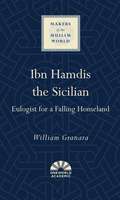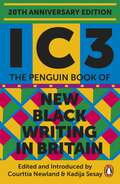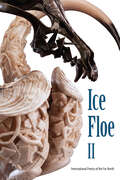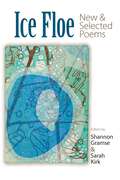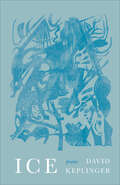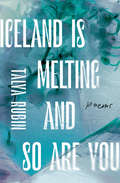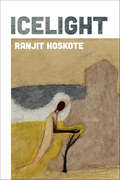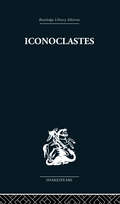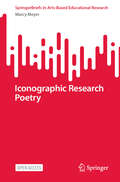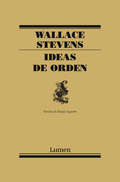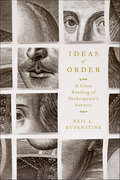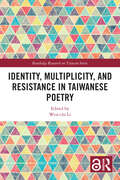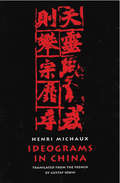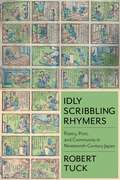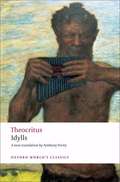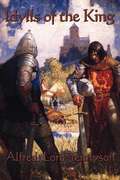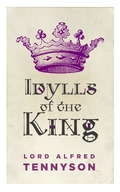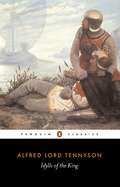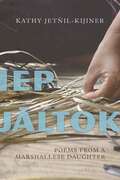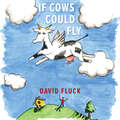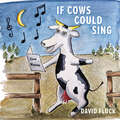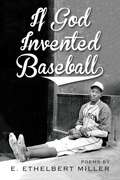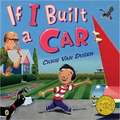- Table View
- List View
Ibn Hamdis the Sicilian: Eulogist for a Falling Homeland (Makers of the Muslim World)
by William Granara&‘Abd al-Jabbar ibn Hamdis (1055–1133) survives as the best-known figure from four centuries of Arab-Islamic civilisation on the island of Sicily. There he grew up in a society enriched by a century of cultural development but whose unity was threatened by competing warlords. After the Normans invaded, he followed many other Muslims in emigrating, first to North Africa and then to Seville, where he began his career as a court poet. Although he achieved fame and success in his time, Ibn Hamdis was forced to bear witness to sectarian strife among the Muslims of both Sicily and Spain, and the gradual success of the Christian reconquest, including the decline of his beloved homeland. Through his verse, William Granara examines his life and times.
Ic3: The Penguin Book of New Black Writing in Britain
by UnknownA celebratory 20th anniversary edition of A landmark collection from black writers across the literary spectrum'The fact that IC3, the police identity for Black, is the only collective term that relates to our situation here as residents ('Black British' is political and refers to Africans, Asians, West Indians, Americans and sometimes even Chinese) is a sad fact of life I could not ignore' from Courttia Newland's Introduction, 2000First published twenty years ago into a different literary landscape, IC3 showcases the work of more than 100 black British authors, celebrating their lasting contributions to literature and British culture. It spans a wealth of genres to demonstrate the range and astonishing literary achievements of black writers, including:Poetry from Roger Robinson, Bernardine Evaristo, Jackie Kay and Benjamin Zephaniah. Short stories from Ferdinand Dennis, Diana Evans, Catherine Jonson, E.A. Markham and Ray Shell.Essays from Floella Benjamin, Linda Bellos, Treva Etienne, Kevin Le Gendre and Labi Siffre.Memoirs from Margaret Busby, Henry Bonsu, Buchi Emecheta, Leone Ross, and many others.Featuring a new introduction from original editors Kadija Sesay and Courttia Newland, this collection reflects on the legacy of these writers, their extraordinary work, and stands as a reminder that black British writers remain underrepresented in literature today.
Ice Floe II: International Poetry of the Far North
by Shannon Gramse & Sarah Kirk, EditorsThe long-awaited second volume of the newly revived Ice Floe series, Ice Floe II features new and exciting works of poetry from a vibrant and diverse group of writers from Alaska, Canada, Russia, Sweden, Iceland, and beyond. All work is presented here in both its original language and in English translation. With contributors that include former Alaska poet laureate Tom Sexton, Riina Katajavuori, Yuri Vaella, Gunnar Randversson, and dozens of other established and emerging poets, this wonderful collection of voices from the northern latitudes will be a great read for all lovers of poetry and international literature.
Ice Floe: New & Selected Poems
by Gramse, Shannon; Kirk, SarahIce Floe, the celebrated and award-winning journal of circumpolar poetry, is here reborn as an annual book series. This first volume features the best of the journal's first seven years, along with evocative new poetry from Alaska, Canada, Iceland, Norway, Sweden, Finland, and Russia. All work is presented in both its original language and in English translation. With contributors including former Alaska poet laureate John Haines, Gunnar Harding, Robert Bly, Lennart Sjögren, and dozens of other established and emerging poets, this wonderful collection of voices from the northern latitudes is a great read for all lovers of poetry and international literature.
Ice: Poems
by David KeplingerIn Siberia’s Yakutia region, animal remains up to fifty thousand years old have reemerged due to climate change. Ice is an index of findings from the places most buried by time—in permafrost or in memory—and their careful excavations.“I am asking how much more / I have to learn from this,” David Keplinger writes. “You are asking that same question.” As Earth’s ancient ephemera floats to its rapidly liquifying surface, he turns to our predecessors—animal, hominid, literary, and familial. Visitants arrive in the form of Gilgamesh, “searching for a way to stay in pain forever”; a grandmother mending socks, “her face in the dark unchanging”; Emily Dickinson, lingering at her window; a lion cub, asleep in ice for millennia.And alongside these comes a critique of the Anthropocene, of our drive to possess, of our hubris. Ice shelves collapse. Climate change melts layers of permafrost to reveal a severed wolf’s head. A pair of grease-smudged reading glasses calls up a mother’s phantom. “I am sorry / for the parts you gave me / that I’ve misshapen,” Keplinger writes. With each discovery comes the difficult knowledge of what—and who—we’ve harmed in the discoveringSo is there “a point to all this singing”? Our ancestors cannot answer. The wolf’s head can’t, either. But sometimes, “out of the snow of confusion,” something answers, “saying gorgeous things like yes.” And the flowers “open up / their small green trumpets anyway.”
Iceland is Melting and So Are You
by Talya RubinThe urgency of the climate emergency is explored in this latest collection by award-winning poet Talya Rubin. It offers recognition of, and salve for, the vast mysteries of the natural world, our human interior, and the relationship between the two.In these poems, human and wild meet in everyday encounters: the melting of ice sheets and fathoming ecological disaster while listening to news reports on the radio; moments of childhood ice skating and unrequited love alongside geological formations and weather patterns. Underlying the collection is a mild sense of absurdity, one that mirrors our existential plight of continuing on in the face of what feels like impossibility.Iceland Is Melting and So Are You asks us to consider what we have kept frozen and unexamined within us and—in doing so—recognize the complex grief and wonder we face in considering the end of the human epoch.Praise for Iceland Is Melting and So Are You:"Iceland Is Melting and So Are You is a fierce and melancholy collection of poems that both directly and indirectly addresses the central concern of the twenty-first century: global warming. Talya Rubin's carefully constructed poems are lyrical, compelling, and filled with the kind of passion that makes things happen. They're centred around both the places in danger and the people who live in those places as they tell the stories we need to hear in this alarming time, 'each year a story/of what we did/or did not/do.'" —Wyn Cooper, author of The Way Back"What does it mean to grieve for a glacier? Iceland Is Melting and So Are You takes readers into the right now of the climate crisis, where the daily 'thunder of collapse' is deafening, yet too often ignored. Like a drill through an ice floe, Rubin pierces the numbing layers of human denial and selfish desire, reminding us that we, too, are saltwater. At once urgent and elegiac, these poems insist that we feel, fiercely, our 'great belonging to the earth.'" —Claire Caldwell, author of 'Gold Rush"In Talya Rubin's Iceland Is Melting and So Are You, the poet is an expression and embodiment of the natural world in the throes of climate change. In this book, one will encounter 'the tumble of glaciers and ice floes' and remark how although, the ruckus goes 'unnoticed,' it is 'everywhere in our veins.' Rubin's poetry goes to work, enacting what Goethe called, "active seeing"—joining the observer to the observed, resolving subject and object in an experience of poetic perception." —Asa Boxer, author of The Narrow Cabinet
Icelight (Wesleyan Poetry Series)
by Ranjit HoskoteIcelight, Ranjit Hoskote's eighth collection of poems, enacts the experience of standing at the edge—of a life, a landscape, a world assuming new contours or going up in flames. Yet, the protagonists of these poems also stand at the edge of epiphany. In the title poem, we meet the Neolithic cave-dweller who, dazzled by a shapeshifting nature, crafts the first icon. The 'I' of these poems is not a sovereign 'I'. A questing, questioning voice, it locates itself in the web of life, in relation to the cosmos. In 'Tacet', the speaker asks: "What if I had/ no skin/ Of what/ am I the barometer?" Long committed to the Japanese mono no aware aesthetic, Hoskote embraces talismans, premonitions, fossils: active residues from the previous lives of people and places. Icelight is a book about transitions and departures, eloquent in its acceptance of transience in the face of mortality. AubadeRumours of wind, banners of cloud.The low earth shakes but the stormhas not arrived. You packfor the journey, look up, look throughthe doors at trees shedding their leavestoo soon, a track on which silk shoeswould be wasted, a moonstill dangling above a boat.Wearing your salt mask, you facethe mulberry shadows.The valley into whichyou're rappellingis you.
Iconocalstes
by Hubert GriffithFirst published in 1927. The main argument in this book is that Shakespeare's work is of such intense vitality that it is always modern and that although historical associations may have grown up round it, considerations of the works that grew out of it, or the works that it derives from, are pure irrelevancies. The author maintains that the quality of Shakespeare's achievement has never been surpassed and that all other considerations - date, time, place, conditions of production and historical significance of his plays - have no bearing whatsoever.
Iconographic Research Poetry (SpringerBriefs in Arts-Based Educational Research)
by Marcy MeyerThis open access book introduces readers to the craft of writing iconographic research poetry in a way that is scholarly, yet playful. By tracing the historical foundations of concrete and iconographic poetry, as well as the development of research poetry and poetic inquiry, the book examines the intellectual roots that inform this unique methodological approach. The book offers a detailed description of the methods that can be used to design iconographic research poetry. It includes step-by-step description of strategies that researchers can use to create iconographic research poetry from qualitative data. By explicating the processes by which data can be represented in the form of iconographic research poetry and offering exemplars, readers will find specific hands-on strategies for creating their own iconographic research poems. The book contains writing exercises designed to help aspiring iconographic research poets exercise their poetic imagination. It also provides qualitative research instructors with suggestions for integrating iconographic research poetry into the classroom.
Ideas de orden
by Wallace StevensUno de los grandes poemarios de Wallace Stevens. Publicado en 1936, Ideas de orden es un libro fundamental en la poesía norteamericana del siglo XX, en el que Wallace Stevens conjugó las voces que eclosionaron con las turbulencias políticas y sociales que en aquella década sufrió el mundo. La dialéctica entre realidad e imaginación, central en la poética de Stevens, adquiere aquí una dimensión nueva, cifrada en el asombroso «La idea de orden en Cayo Hueso», uno de los grandes poemas del novecientos. La extraordinaria versión de Daniel Aguirre supone una nueva lectura de un clásico que parece hablar del siglo XXI.
Ideas of Order: A Close Reading of Shakespeare's Sonnets
by Neil L. RudenstineShakespeare's sonnets are the greatest single work of lyric poetry in English, as passionate and daring as any love poems we may ever encounter, and yet, they are often misunderstood. Ideas of Order: A Close Reading of Shakespeare's Sonnets reveals an underlying structure within the 154 poems that illuminates the entire work, and provides a guide—for first-time readers as well as scholars—that inspires a new understanding of this complex masterpiece. Elizabethan scholar and former Harvard University president Neil L. Rudenstine makes a compelling case for the existence of a dramatic arc within the work through an expert interpretation of distinct groups of sonnets in relationship to one another. The sonnets show us a poet in turmoil whose love for a young man—who returns his affections—is utterly transformative, binding him in such an irresistible way that it survives a number of infidelities. And the poet and the young man are drawn in to a cycle of lust and betrayal by a "dark lady," a woman with the "power to make love groan." Rudenstine's reading unveils the relationship between major groups of poems: the expressions of love, the transgressions, the longings, the jealousies, and the reconciliations. This critical analysis is accompanied by the text of all of Shakespeare's sonnets. Accessible and thought-provoking, Ideas of Order is an invaluable companion to this cornerstone of literature.
Identity, Multiplicity, and Resistance in Taiwanese Poetry (Routledge Research on Taiwan Series)
by Wen-Chi LiLi and his contributors explore how Taiwanese poets conceptualize their identities, employing multiple voices to challenge political hegemony and re-evaluate Taiwan’s colonial legacy and nationalism.Poetry in Taiwan exists at the intersection of Taiwanese, Mandarin, and Japanese languages and traditions. The rise of China has contributed to the shrinking of Taiwan’s international space, leading to Taiwanese cultures often being viewed as tributaries or by-products of China on the global stage. They focus on Taiwanese poetry to highlight a history of local resistance in gender, identity, cultural, and linguistic contexts. They deconstruct the hegemony and homogeneity of “Chineseness,” exploring multiple ways to reposition Taiwan on the map of world literature.Essential reading for scholars of Sinophone literature, as well as those interested in the history and culture of Taiwan.
Ideograms in China
by Henri Michaux Gustaf SobinPreviously available only as a limited editon, Henri Michaux's Ideograms in China is now available as a New Directions paperback. Peerlessly translated by the American poet Gustaf Sobin, this long, beautifully illustrated and annotated prose poem was originally written as an introduction to Leon Chang's La calligraphie chinoise (1971), a work that now stands as an important complement to Pound and Ernest Fenollosa's classic study, The Chinese Written Character as a Medium for Poetry. Allen Ginsberg called Michaux a genius, and Jorge Luis Borges said that his work is without equal in the literature of our time. Henri Michaux (1899-1984) wrote Ideograms in China as an introduction to Leon Chang’s La calligraphie chinoise (1971), a work that now stands as an important complement to Ezra Pound and Ernest Fenollosa’s classic study, The Chinese Written Character as a Medium for Poetry. Previously available only as a limited edition, Ideograms in China is a long, gorgeously illustrated and annotated prose poem containing a very deep consideration of the world’s oldest living language. Poet Gustaf Sobin’s luminous English version beautifully captures the astounding and strange French original. For Michaux, the Chinese culture ranked as the world’s richest, a culture grounded in its written language, which bound China together through three millennia and across its enormous territories. Ideograms in China presents an oblique history of that culture through the changing variety and beauty of the ideograms: Michaux looks into a dozen scripts––from ancient bronze vessels bearing ku-wen script to running script to standard k’ai-shu characters––and the poem carries the rhythms of someone discovering the soul of a civilization in its impression of ink on paper.
Idly Scribbling Rhymers: Poetry, Print, and Community in Nineteenth-Century Japan (Weatherhead Books on Asia)
by Robert TuckHow can literary forms fashion a nation? Though genres such as the novel and newspaper have been credited with shaping a national imagination and a sense of community, during the rapid modernization of the Meiji period, Japanese intellectuals took a striking—but often overlooked—interest in poetry’s ties to national character. In Idly Scribbling Rhymers, Robert Tuck offers a groundbreaking study of the connections among traditional poetic genres, print media, and visions of national community in late nineteenth-century Japan that reveals the fissures within the process of imagining the nation.Structured around the work of the poet and critic Masaoka Shiki, Idly Scribbling Rhymers considers how poetic genres were read, written, and discussed within the emergent worlds of the newspaper and literary periodical in Meiji Japan. Tuck details attempts to cast each of the three traditional poetic genres of haiku, kanshi, and waka as Japan’s national poetry. He analyzes the nature and boundaries of the concepts of national poetic community that were meant to accompany literary production, showing that Japan’s visions of community were defined by processes of hierarchy and exclusion and deeply divided along lines of social class, gender, and political affiliation. A comprehensive study of nineteenth-century Japanese poetics and print culture, Idly Scribbling Rhymers reveals poetry’s surprising yet fundamental role in emerging forms of media and national consciousness.
Idylls (Oxford World's Classics)
by Richard Hunter Theocritus Anthony Verity'Eucritus and I and pretty Amyntas turned aside To the farm of Phrasidamus, where we sank down With pleasure on deep-piled couches of sweet rushes, And vine leaves freshly stripped from the bush.' The Greek poet Theocritus of Syracuse (first half of the third century BC) was the inventor of 'bucolic' poetry. These vignettes of country life, centred on competitions in song and love, are the foundational poems of the western pastoral tradition. They were the principal model for Virgil in the Eclogues and their influence can be seen in the work of Petrarch and Milton. Although it is the pastoral poems for which he is chiefly famous, Theocritus also wrote hymns to the gods, brilliant mime depictions of everyday life, short narrative epics, epigrams, and encomia of the powerful. The great variety of his poems illustrates the rich and flourishing poetic culture of what was a golden age for Greek poetry. ABOUT THE SERIES: For over 100 years Oxford World's Classics has made available the widest range of literature from around the globe. Each affordable volume reflects Oxford's commitment to scholarship, providing the most accurate text plus a wealth of other valuable features, including expert introductions by leading authorities, helpful notes to clarify the text, up-to-date bibliographies for further study, and much more.
Idylls of the King
by Alfred Lord TennysonIn Idylls of the King Tennyson infuses the King Arthur legend with passion and fire. This legendary epic poem brings the Table Round to life. Experience the love affair of Lancelot and Guinevere, join the quest for the Holy Grail. Tennyson's powerful and inspired writing is a tour de force that is not to be missed.
Idylls of the King
by Lord Alfred TennysonThe timeless legend of King Arthur retold in Alfred, Lord Tennyson's scintillating poetry. Tennyson brings to the page his own unique take on many of the classic Arthurian tales, including Lancelots marriage to Elaine and his affair with Queen Guinevere, and the quest for the Holy Grail. The saga is bookended by the story of Arthur - his ascent to the throne, and the fall of Camelot. Penguin Random House Canada is proud to bring you classic works of literature in e-book form, with the highest quality production values. Find more today and rediscover books you never knew you loved.
Idylls of the King: Poems Concerning The Legends Of King Arthur And The Knights Of The Round Table, Complete And Unabridged
by Alfred Lord TennysonTennyson had a life-long interest in the legend of King Arthur and after the huge success of his poem 'Morte d'Arthur' he built on the theme with this series of twelve poems, written in two periods of intense creativity over nearly twenty years. Idylls of the King traces the story of Arthur's rule, from his first encounter with Guinevere and the quest for the Holy Grail to the adultery of his Queen with Launcelot and the King's death in a final battle that spells the ruin of his kingdom. Told with lyrical and dreamlike eloquence, Tennyson's depiction of the Round Table reflects a longing for a past age of valour and chivalry. And in his depiction of King Arthur he created a hero imbued with the values of the Victorian age - one who embodies the highest ideals of manhood and kingship.
Iep Jaltok: Poems From A Marshallese Daughter (Sun Tracks Ser. #80)
by Kathy Jetnil-KijinerAs the seas rise, the fight intensifies to save the Pacific Ocean’s Marshall Islands from being devoured by the waters around them. At the same time, activists are raising their poetic voices against decades of colonialism, environmental destruction, and social injustice. Marshallese poet and activist Kathy Jetnil-Kijiner’s writing highlights the traumas of colonialism, racism, forced migration, the legacy of American nuclear testing, and the impending threats of climate change. Bearing witness at the front lines of various activist movements inspires her work and has propelled her poetry onto international stages, where she has performed in front of audiences ranging from elementary school students to more than a hundred world leaders at the United Nations Climate Summit. The poet connects us to Marshallese daily life and tradition, likening her poetry to a basket and its essential materials. Her cultural roots and her family provides the thick fiber, the structure of the basket. Her diasporic upbringing is the material which wraps around the fiber, an essential layer to the structure of her experiences. And her passion for justice and change, the passion which brings her to the front lines of activist movements—is the stitching that binds these two experiences together. Iep Jāltok will make history as the first published book of poetry written by a Marshallese author, and it ushers in an important new voice for justice.
If Cows Could Fly
by David FluckEver seen a flying cow, a horse that knits, or an eel that rides a bike? Well, welcome in to a world where your fantasy and imagination can bring them all to life. This set of humorous poems, mainly concerning the strange things animals may get up to, are suitably illustrated by the author's whimsical drawings.
If Cows Could Sing
by David FluckEver heard a cow sing, or seen a three-legged pink flying sheep? Or wondered how a mighty oak tree, could ever have been a tiny trembling acorn? Well, welcome to a world where your fantasy and imagination can bring them all to life.
If God Invented Baseball
by E. Ethelbert MillerHere are poems that celebrate and interpret the game by one of America's finest poets. They are for everyone who has experienced the magic released when three holy things come together: bat, ball and glove. "Ethelbert Miller is one of the most significant and influential poets of our time." --Gwendolyn BrooksIf God Invented Baseball is a complete game of baseball poems, a full nine innings pitched by a “master twirler,” whose complete arsenal includes fastballs, curves and change-ups, and the occasional knuckler, to keep readers swinging for the fences, his full artistry on display. Ethelbert Miller's work captures the enjoyment of the game from childhood to old age. Baseball fans will place this book next to their scorecards, peanuts and beer. Poetry readers will equally be delighted. If God Invented Baseball is a book for the ballpark and the home. “Ethelbert's replay of baseball joys and sorrows is a must read. He brings us THE GAME with skill and grace. It is an inside the park home run” -- Clifford Alexander
If I Built A School (If I Built...)
by Chris Van DusenIn this exuberant companion to If I Built a Car, a boy fantasizes about his dream school--from classroom to cafeteria to library to playground. My school will amaze you. My school will astound. By far the most fabulous school to be found! Perfectly planned and impeccably clean. On a scale, 1 to 10, it's more like 15! And learning is fun in a place that's fun, too. If Jack built a school, there would be hover desks and pop-up textbooks, skydiving wind tunnels and a trampoline basketball court in the gym, a robo-chef to serve lunch in the cafeteria, field trips to Mars, and a whole lot more. The inventive boy who described his ideal car and house in previous books is dreaming even bigger this time.
If I Built a Car
by Chris Van Dusen"If I built a car, it'd be totally new! Here are a few of the things that I'd do. . . . " Jack has designed the ultimate fantasy car. Inspired by zeppelins and trains, Cadillacs and old planes, with brilliant colors and lots of shiny chrome, this far-out vision is ready to cruise! there's a fireplace, a pool, and even a snack bar! After a tour of the ritzy interior, robert the robot starts up the motor . . . and Jack and his dad set off on the wildest test drive ever!
